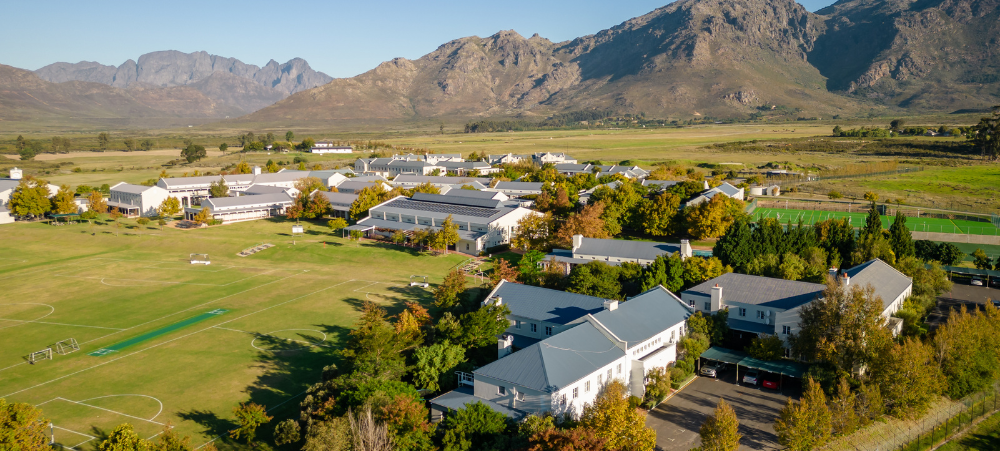The education profession has come a long way in the last few decades with the growth of the private education sector, and whereas previously career options for graduates were limited, prospects now abound, an education expert says.
“Because graduates are in demand both domestically and abroad, teaching credentials have grown in popularity. The teaching profession’s career development has also adopted a new perspective in which teachers can go from being school mentors to leadership positions, such as vice chancellor of the university,” says Dr Lindiwe Mokotjo, Head of Faculty: Education at The Independent Institute of Education, SA’s leading private education provider.
“Where previously, teachers would mostly be headed to a classroom for the duration of their career, with only a handful being promoted to heads of department or deputy or principal, they now have a wide range of options on top of teaching including, but not limited to, instructional design, tutoring, coaching, school management, educational consulting and the option of joining the corporate world of private education. Additionally, there is also great demand for qualified South African teachers abroad,” Mokotjo says.
The way future teachers should be prepared has drastically changed as a result of the expansion of the teaching profession. The transformation includes understanding the material being taught, how it is being taught, the setting in which learners are being taught, and the fact that each learner is unique and capable of excelling when working with a qualified teacher, says Mokotjo.
“Teachers play a vital role in shaping future generations as they sculpt our leaders of tomorrow. Schools of education therefore must be focused on preparing dynamic and skilled future teachers for a life long and successful career in education by equipping them for the 21st century classroom.”
As a result, it is imperative that prospective education students ensure they vet their chosen institution and qualification carefully to confirm that they aren’t stuck in the historic education mould, but that they are strongly focused on staying ahead of latest developments and trends in the field.
Mokotjo says there are a number of different education qualifications to choose from, for instance:
- A Higher Certificate in Early Childhood Care and Education. This is an entry level/introductory qualification (at NQF Level 5) to the study of early childhood development (ECD) education from birth through to 4 years of age.
- A Bachelor of Education (BEd) in Foundation Phase Teaching (FPT) is an undergraduate professional qualification aimed at preparing students to teach learners from Grades R to 3.
- A Bachelor of Education (B Ed) in Intermediate Phase Teaching. This is an undergraduate professional qualification aimed at preparing students to teach children from Grades 4 to 7.
- A Postgraduate Certificate in Education (PGCE) in Senior Phase (SP) and Further Education and Training (FET) Teaching.
It is important to ensure that the chosen qualification is structured in accordance with the Department of Higher Education and Training’s (DHET) Minimum Requirements for Teacher Education Qualifications (2015) or The Department of Higher Education and Training’s (DHET) Policy on Minimum Requirements for Programmes Leading to Qualifications in Higher Education for Early Childhood Development Educators (2017).
Also of great importance, is to ensure that a curriculum incorporates Teaching theory and work-integrated learning components.
“This critical component exposes students to diverse educational settings which ensures that they develop the practical skills essential for excellence in teaching. An institution offering Initial Teacher Education qualifications should have a network of schools in their area of operation to ensure access to differently resourced schools for student teaching opportunitiesm,” notes Mokotjo.
Further, to access work-integrated learning in schools, students would need to present a valid Police Clearance Certificate and register with the SA Council for Educators (SACE) in their final year.
Depending on the specific qualification, education students’ curricula will likely include Languages, Natural Science and Technology, Mathematics and Social Sciences, Psychology for Educators, Professional Ethics, Assessment and Measurement, Educational Management and Research.
“A quality teaching degree from a reputable higher education institution opens the door to a rewarding, interesting, and varied career trajectory – provided, of course, that the educator is invested to lifelong learning and continuously improving their skills to ensure they can in turn prepare learners in their career for a prosperous future,” Mokotjo says.
“There currently is a significant and growing need for a dynamic pipeline of professional teachers, who are able to bring enthusiasm and innovation not just to the classroom, but to the education profession as a whole. Whereas previously education was perhaps not always a career of first choice for many, the field has now evolved and truly come into its own, with new and exciting opportunities for ambitious young people.”
We understand that there are many aspects that encompass a Mother, Father or Child and strive toward providing resources and services that accommodates this.
Our content is aimed to inform and educate families on issues starting from pregnancy through to the challenges of the teen-age years.
- Tips for Breastfeeding in Public: Confidence and Comfort - November 20, 2025
- Eskort launches Kiddos: South Africa’s first pork range made just for kids - November 13, 2025
- Putting the Power of Learning in Learners’ Hands During Global Education Week - November 12, 2025





